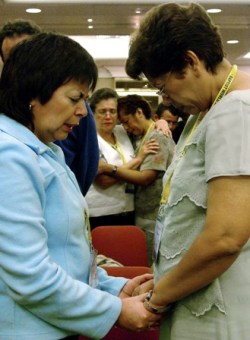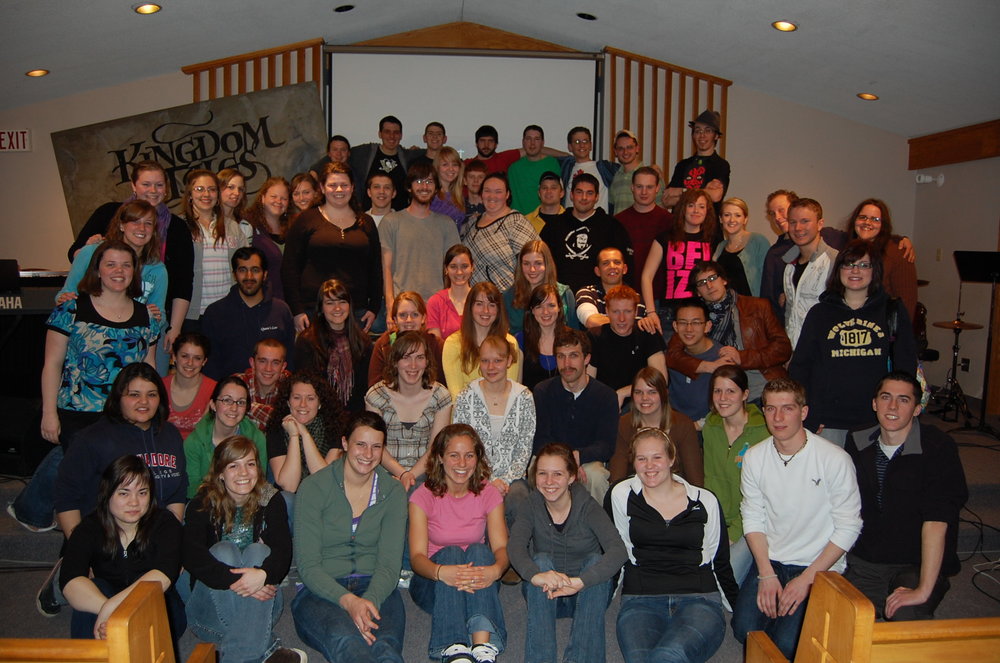It Is Just The Way You See It!
 I truly believe that the five fold is basically passion and point of view. When you are passionate, that passion drives you. I was passionate to get a room in my house built from scratch to finished project. Because of that the dry walling and sanding, the tedious cutting in for painting, etc. were not so bad. I was driven to get it done the best of my ability.
I truly believe that the five fold is basically passion and point of view. When you are passionate, that passion drives you. I was passionate to get a room in my house built from scratch to finished project. Because of that the dry walling and sanding, the tedious cutting in for painting, etc. were not so bad. I was driven to get it done the best of my ability.
The beauty of the five fold is “vision” and “Point of View”. The way one perceives his world and his place in it is his passion and point of view. It is no different for the five fold. Let’s briefly look at these “points of view”:
 The evangelist is driven by the desire to see birth and rebirth, taking the lost (those not knowing Jesus) to becoming found (finding Jesus as their Savior). General Booth of the Salvation Army is an excellent example. Winning the lost became all consuming to him, thus he founded an army to proclaim salvation to the lost. Unfortunately, when the lost is found, a new birth or rebirth proclaimed, nurturing their growth is not the evangelist’s top priority, for he/she is ready to move on and win yet more for Jesus.
The evangelist is driven by the desire to see birth and rebirth, taking the lost (those not knowing Jesus) to becoming found (finding Jesus as their Savior). General Booth of the Salvation Army is an excellent example. Winning the lost became all consuming to him, thus he founded an army to proclaim salvation to the lost. Unfortunately, when the lost is found, a new birth or rebirth proclaimed, nurturing their growth is not the evangelist’s top priority, for he/she is ready to move on and win yet more for Jesus.
 The pastor/shepherd is driven to care for the sheep. Shepherds nurture, feed, and care for their sheep, which becomes a tedious task, for they teach a believer how to make their new found faith into a lifestyle. A pastor’s vision is to hear the words of Matthew 25:35-36: “I was hungry and you gave me something to eat, thirsty and you gave me drink, a stranger and you invited me in, needing clothes and you clothed me, sick and you looked after me, in prison and you came to visit me.”
The pastor/shepherd is driven to care for the sheep. Shepherds nurture, feed, and care for their sheep, which becomes a tedious task, for they teach a believer how to make their new found faith into a lifestyle. A pastor’s vision is to hear the words of Matthew 25:35-36: “I was hungry and you gave me something to eat, thirsty and you gave me drink, a stranger and you invited me in, needing clothes and you clothed me, sick and you looked after me, in prison and you came to visit me.”
 A teacher’s passion is to validate the Word of God, the written Word, the Logos Word, into the lives of every believer. They want to validate the believer’s walk with the Word. The teacher wants to validate this new found faith and lifestyle through the Logos Word, making it a Rhema, or living Word. John 1 says the “Word became flesh and dwelt among us.” The teacher wants that word, now in Spirit, that dwells in each believer to teach that believer the truth and fulfillment of the Logos Word through faith. Study the scriptures is powerful, but dangerous, for if it is done without the Holy Spirit, believers can become Pharisees, those who knew the Word in Jesus’ time, but opposed the truth and spirit of his teachings.
A teacher’s passion is to validate the Word of God, the written Word, the Logos Word, into the lives of every believer. They want to validate the believer’s walk with the Word. The teacher wants to validate this new found faith and lifestyle through the Logos Word, making it a Rhema, or living Word. John 1 says the “Word became flesh and dwelt among us.” The teacher wants that word, now in Spirit, that dwells in each believer to teach that believer the truth and fulfillment of the Logos Word through faith. Study the scriptures is powerful, but dangerous, for if it is done without the Holy Spirit, believers can become Pharisees, those who knew the Word in Jesus’ time, but opposed the truth and spirit of his teachings.
 If a prophet had his/her way, they would spend all day in worship, in reading their Bible, in intercession and prayer, in intimacy with God the Father, His Son, Jesus, and the Holy Spirit. Adam and Eve lost their intimacy with God when they sinned, but Jesus’ death and resurrection restored the intimacy lost through sin. Sin has been conquered, death defeated. A prophet is trying to make up for lost time. Their drive, their passion, their point of view is to be intimate with Jesus. Nothing else matters to them.
If a prophet had his/her way, they would spend all day in worship, in reading their Bible, in intercession and prayer, in intimacy with God the Father, His Son, Jesus, and the Holy Spirit. Adam and Eve lost their intimacy with God when they sinned, but Jesus’ death and resurrection restored the intimacy lost through sin. Sin has been conquered, death defeated. A prophet is trying to make up for lost time. Their drive, their passion, their point of view is to be intimate with Jesus. Nothing else matters to them.

An apostle has experienced the pain of seeing the lost and the passion to win them to Christ, has experienced the over whelming passion to feed the sheep physically and spiritually to have them walk the walk in their lifestyle, has experienced the power of teaching with authority the Word of God, has experienced that intimacy with his/her God through Jesus, but unfortunately can not to all of them himself unless he wants to get burned out, which happens to many a man of God who takes on more than he can handle. An apostle’s point of view, his vision, his sight is seeing the Big Picture, the Church as a whole. Since he cannot do it all himself, he is commissioned to encourage others who have the other four passions and “prepares God’s people for works of service, so that the body of Christ may be built up until we all reach unity in the faith and in the knowledge of the Son of God and become mature, attaining to the whole measure of the fullness of Christ.” (Eph. 4) His job is to “see over” the Big Picture, not “oversee” it, for that is the Holy Spirit’s job, and to prepare God’s people for the works of service.
The five fold is five distinctly different points of view that can divide the Church if not led by the Holy Spirit, or be the very tool to unify it.
 I cannot remember the last time that I have heard a sermon about the Priesthood according to Melchizedek. I remember it was one of the key components taught back in the 1970’s during the Jesus Movement to the masses hungering for revival, but I can’t recall it being taught in a conventional church service. Why?
I cannot remember the last time that I have heard a sermon about the Priesthood according to Melchizedek. I remember it was one of the key components taught back in the 1970’s during the Jesus Movement to the masses hungering for revival, but I can’t recall it being taught in a conventional church service. Why?




































